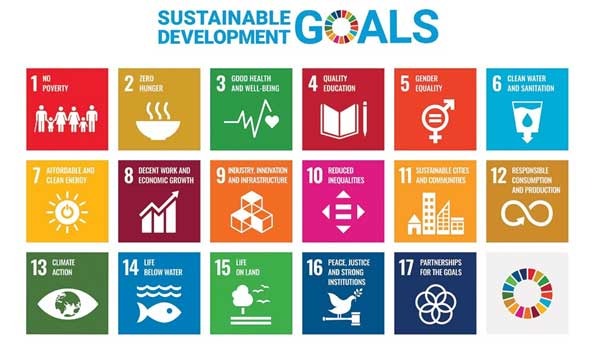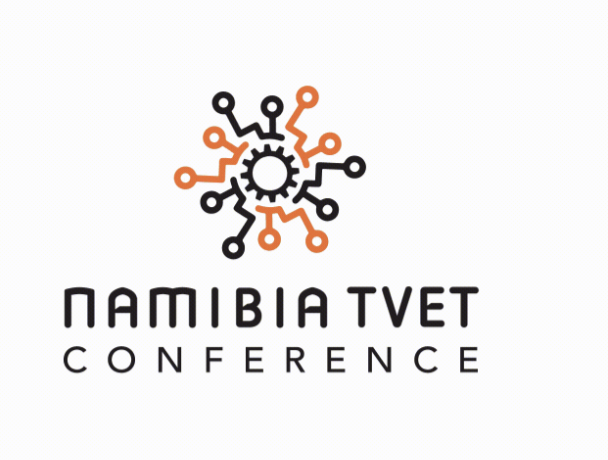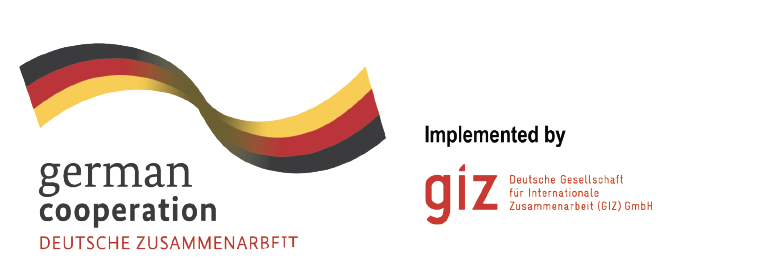2023 Conference
23-27 October 2023
Join us for the first annual NUST TVET Conference from 23 to 27 October 2023 hosted by the Department of Technical and Vocational Education and Training under the Faculty of Commerce, Human Sciences and Education to deliberate, network and present a wide range of perspectives, scholarship, and expertise in the pursuit of best practices in technical and vocational education and training.
The African Union’s Agenda 2063 is Africa’s blueprint and master plan for transforming Africa into the global powerhouse of the future. It is the continent’s strategic framework that aims to deliver on its goal for inclusive and sustainable development and is a concrete manifestation of the pan-African drive for unity, self-determination, freedom, progress and collective prosperity (African Union’s Agenda 2063). It reflects the desire of the continental body for shared prosperity and well-being, for unity and integration, for a continent of free citizens and expanded horizons.
To be a knowledge-based and industrialised society, there is a need for a sustainable TVET sector that is able to respond to the dynamics of society and the economy. Technical and Vocational Education and Training (TVET) is recognised as a source of knowledge, skills and attitudes needed to drive productivity in knowledge-based societies of the 21st century.

Emerging research and innovation practices in TVET
Innovation plays a major role in presenting opportunities to inspire transformational changes with many opportunities introduced by emerging practices supported by research. Emerging research should serve as the driving force of TVET to bring about new practices aligned with the changing society. This will enable TVET organizations to apply new practices to transform teaching and learning to a new generation.

Promoting Inclusivity in TVET
According to the International Labour Organization (ILO, 2017) people with disabilities comprise 15 per cent of the global population and an estimated 785 million persons of working age. They represent a marginalized group in the labour market in all countries around the world, being far more likely than persons without disabilities to be unemployed, underemployed, or economically inactive. Where they have participated in vocational training, it is often in segregated settings where courses are frequently not linked to labour market requirements or at a standard lower than that required by employers. And where they are employed, workers with disabilities are more likely to be in low-paid jobs with poor promotional prospects.

Promote employability of graduates through Work Integrated Learning (WIL)
WIL in TVET promotes the view that learning experiences in workplaces are legitimate, worthwhile, and a key element of preparation for working life (UNESCO, 2021). WIL is however complex to manage in training systems and TVET is no exception. With improved WIL practice, the current gap between TVET graduates and industry would significantly improve. Therefore, it is imperative to redirect our efforts towards shrinking the gap between TVET training institutions and industries through a highly effective and competitive WIL system. There is strong evidence from international experience that combining centre-based with workplace-based training improves the labour market outcomes of young people (ILO, 2010; ETF, 2014; UNESCO, 2015; OECD, 2016). Namibia would thus benefit from a policy of incentives for firms to take in trainees, as pointed out by NTA, and from the introduction of a formalized process for job placements.

Supporting lifelong learning in the TVET
WIL in TVET promotes the view that learning experiences in workplaces are legitimate, worthwhile, and a key element of preparation for working life (UNESCO, 2021). WIL is however complex to manage in training systems and TVET is no exception. With improved WIL practice, the current gap between TVET graduates and industry would significantly improve. Therefore, it is imperative to redirect our efforts towards shrinking the gap between TVET training institutions and industries through a highly effective and competitive WIL system. There is strong evidence from international experience that combining centre-based with workplace-based training improves the labour market outcomes of young people (ILO, 2010; ETF, 2014; UNESCO, 2015; OECD, 2016). Namibia would thus benefit from a policy of incentives for firms to take in trainees, as pointed out by NTA, and from the introduction of a formalized process for job placements.
Discussion points
- Formal and informal learning in TVET systems
- The role of formal and non-formal TVET sectors in TVET training
- Skills needed in TVET for lifelong learning
- The role of TVET in the future world of work
- Recognition of prior learning in TVET education
- Addressing the negative connotation towards TVET education

Greening TVET for sustainable development
UNESCO (2017) defines Greening as the process of pursuing knowledge and practices with the intention of becoming more environmentally friendly, enhancing decision-making and lifestyle in more ecologically responsible manner, that can lead to environmental protection and sustainability of natural resources for current and future generations. It is therefore imperative that the Namibian TVET sector align itself with the proposed UNESCO agenda on greening the Namibian TVET industry.

Leveraging digitalisation to transform TVET
Employers’ expectations of their workforce have been directly influenced by digitisation (Rifkin, 1995; Dobrydina, 2019). In today’s world, the use of digital tools in the workplace plays a significant role in helping an organization improve productivity in a changing world of work. Therefore, leveraging digitalization for sustainability in TVET requires major transformation. This can be done by replacing outdated tools, updating internal systems, and capacity-building on best practices for utilizing emerging technology
23-27 October 2023
The first annual Namibia TVET Conference aims to provide a platform for TVET practitioners and scholars from all over the world to deliberate, network and present a wide range of perspectives, scholarship, and expertise in the pursuit of best practices in technical and vocational education and training.
The Namibia TVET Conference welcomes high-quality original and unpublished research contributions in the form of papers and e-posters from presenters in the country as well as international community under the following sub-themes:
- Fostering research and innovative practices in TVET
- Advocating for inclusiveness in TVET
- Creating employability in the TVET sector through Work Integrated Learning (WIL)
- Promoting entrepreneurship in TVET
- Supporting lifelong learning in TVET
- Greening TVET for sustainable development
- Leveraging digitalisation to transform TVET
Selected papers will be published in the first issue of the Namibia Journal of Technical and Vocational Education and Training (NJTVET) that will be launched at the NUST TVET Conference.
| Abstract Submission Deadline | 14 August 2023 |
| Notification of Abstract acceptance | 21 August 2023 |
| Full Paper Submission Deadline: | 22 September 2023 |
| Early Bird Registration starts | 01 August 2023 |
| Standard Registration starts | 01 September 2023 |
Abstract Submission Guidelines
- Abstracts submitted to the Namibia TVET Conference should be typed in Microsoft Word using British English in Calibri, with a font size of 11, line spacing of 1.5 and the margins of the document should be set at 2.54 inch all sides.
- The title should not exceed 15 words, and should be capitalized, centered, with font Calibri 14.
- The abstract should be between 350-400 words and include the problem, methods, findings, conclusions, and implications and 3-5 keywords.
- Before submitting your abstract please ensure that it has been carefully read for typographical and grammatical errors.
- Abstract should be submitted as .docx. via the link provided on the website. Abstracts should not be sent in PDF format and should not be zipped.
- Once the abstracts are reviewed, you will receive notification on the status of the paper.
Process of Evaluation
-
After submission, your abstract will be subjected to a double-blind peer evaluation.
-
After the peer review, we will send you the result of the review of your abstract.
-
The reviewer might suggest some further work in your abstract and the amended abstract must be returned.
Full Paper Submission Guidelines
- Articles submitted to the Namibia TVET Conference should be typed in Microsoft Word using British English in Calibri, with a font size of 11, line spacing of 1.5 and the margins of the document should be set at 2.54 inch all sides.
- The title of the article should not exceed 15 words, and should be capitalized, centered, with font Calibri 14.
- Articles should be between 7,000 to 10,000 words including references. The submitted article should cover introduction, brief literature review, theoretical framework and or conceptual framework, research methods, results and discussions, conclusions and references.
- The sources cited in the body of the manuscript should appear in the reference, and all sources appearing in the reference should be cited in the body of the article using APA referencing format.
- The article should be accompanied by an abstract consisting of 150- 200 words and written in italic. Below the abstract, the author(s) should provide 3- 5 keywords with the font size 11.
- Please send a short biography of up to 50 words of the presenting author in a separate document, with a high-quality photograph.
- Before submitting your paper please ensure that it has been carefully read for typographical and grammatical errors.
- Papers should be submitted as .docx. via the link provided on the website. Papers should not be sent in PDF format and should not be zipped.
Approximately 200 key stakeholders from government, industry, academia, and training institutions, gathered in Windhoek for a symposium to discuss the future of Technical Vocational Education and Training (TVET). Held under the theme “TVET Transformation Trends in Namibia,” the symposium, under the auspices of NUST and the GIZ, focused on modernisation, inclusivity, sustainability, and collaboration.








